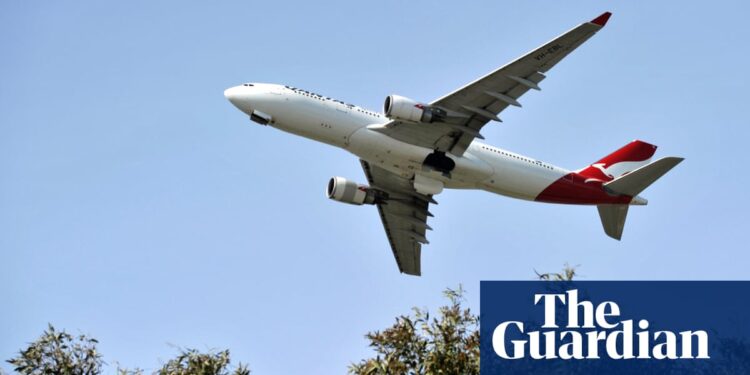The flying public in Australia will gain improved rights to seek refunds and remedies from airlines and people living under flight paths will be able to complain to a new aircraft noise ombudsman.
On Monday the Albanese government released its aviation white paper, and committed to 56 initiatives to improve fairness and accessibility at a time of dwindling competition.
A new aviation industry ombudsman will enforce a passenger rights charter, which could include cash compensation for cancelled or delayed flights.
And the government will establish an aircraft noise ombudsman to conduct independent investigations into handling of complaints by Airservices Australia, which will be stripped of that responsibility due to “potential for conflicts” that “can undermine public confidence”.
Airservices Australia will also collect more information on aircraft movements and noise effects, publishing quarterly reports on noncompliance with noise abatement procedures.
Pilots will be asked to fly “considerately” with new guidance on minimising noise in residential areas, a potent political issue in inner-city seats including three Brisbane electorates won by the Greens at the 2022 election.
The white paper notes difficulties with competition because airports are “natural monopolies” and overseas airlines show “minimal interest in establishing new Australian carriers” to compete with Virgin and Qantas.
The government will attempt to improve competition by reforming slot management at Sydney Airport, opening competitive appointments to the role of slot manager to more effectively enforce slot rules and better handle conflicts of interest.
The government has asked the Productivity Commission to inquire into the economic regulation of airports, considering further changes to slot rules such as a stricter “use it or lose it” rule.
after newsletter promotion
The Australian Competition and Consumer Commission already reviews pricing of domestic airlines, but could be asked to monitor pricing negotiations at Sydney, Brisbane, Melbourne, Perth and western Sydney airports.
The government is considering changes to aeronautical pricing principles to specify that pricing agreements between airports and airlines should not be anti-competitive.






